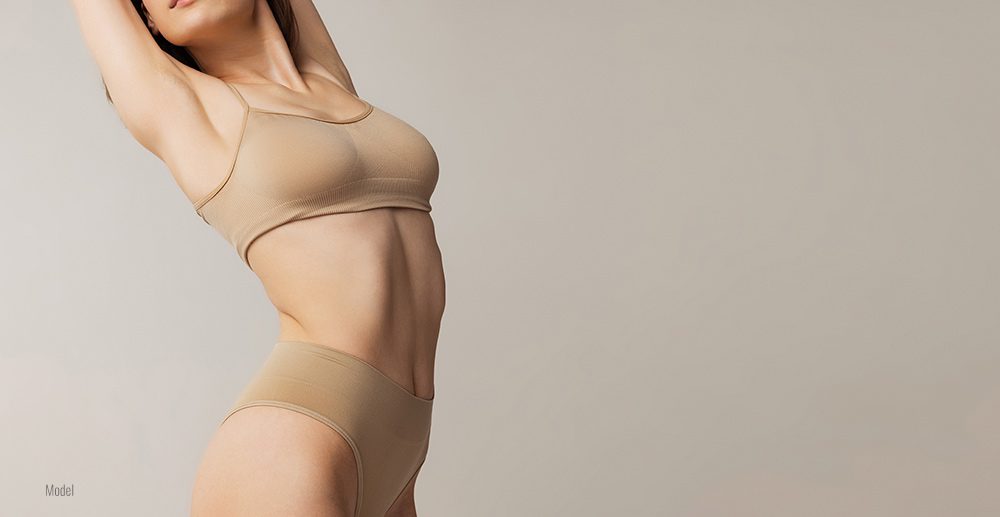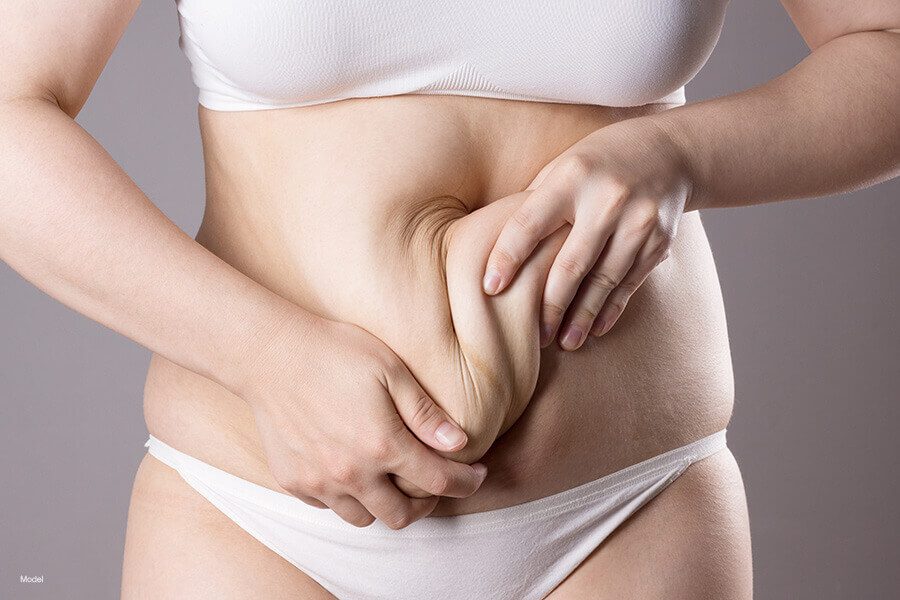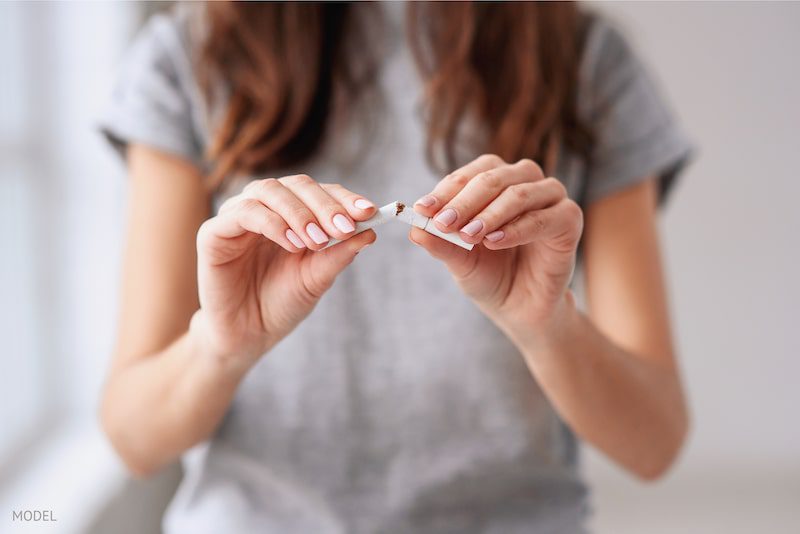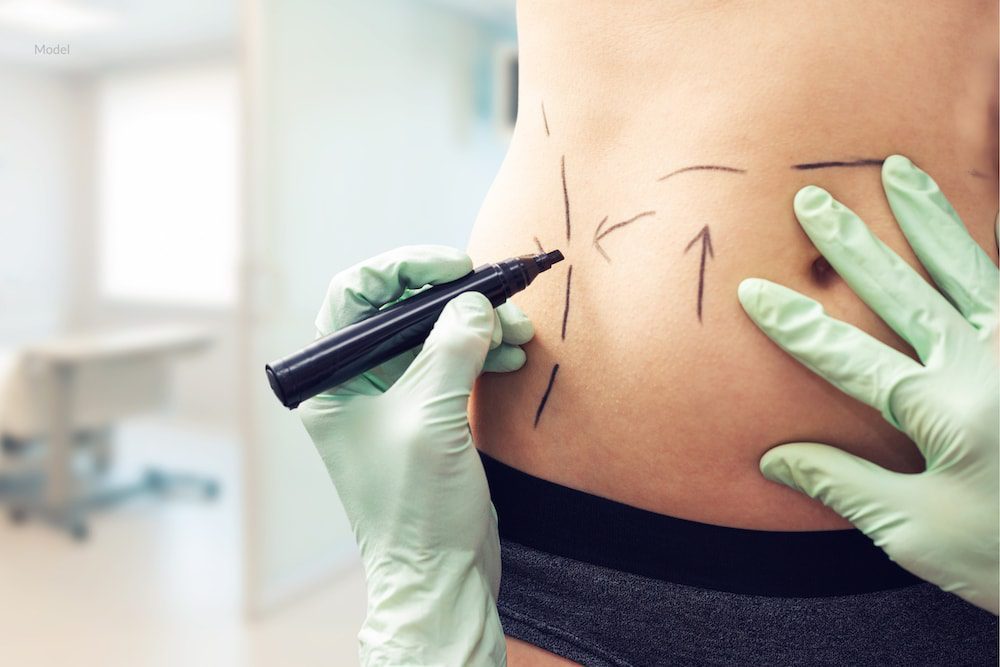When to Choose Liposuction, Tummy Tuck, or Both
Liposuction, Tummy Tuck | The Office of Dr. Vincent Hung

Do you struggle with stubborn, diet-resistant pockets of fat? Maybe you have excess loose skin on your belly and waist due to weight loss, pregnancy, or aging. There is a solution, whether you’re experiencing one of these issues or both. A tummy tuck is typically the best option to smooth and tighten abdominal skin while slimming the midsection. However, liposuction is a less invasive option if your skin is in relatively good shape and your primary concern is stubborn, localized fat. This comprehensive guide will explore how these procedures work and when to combine them for the best results.
4 Min Read:
Your Options for a More Toned and Fit-Looking Body
We’re all trying to look our best and exploring different ways to reach that elusive objective. Liposuction and tummy tuck surgery can enhance the appearance of the abdomen and waist. However, the goals are achieved through different methods. Understanding the differences between these procedures is crucial for anyone considering either to achieve their desired body goals.
Liposuction: Sculpting Your Figure or Physique
Liposuction is a surgical procedure designed to remove stubborn pockets of fat from specific areas of the body, including the abdomen. This popular procedure is ideal for individuals close to their ideal body weight who struggle with fat deposits that are resistant to diet and exercise.
The process involves making small incisions in the target area through which a thin, hollow tube called a cannula is inserted. The plastic surgeon will use the cannula to break up the fat and then suction out excess fat cells to sculpt the body and achieve more desirable contours. Liposuction can be performed on various areas of the body, including the chin, abdomen, thighs, hips, buttocks, arms, and neck.
When to Choose Liposuction
Liposuction is the better option if you meet the following criteria:
- You have localized fat deposits: Liposuction is most effective for addressing specific areas of stubborn fat, such as love handles, saddlebags, or a double chin.
- You have good skin elasticity: Ideal candidates for liposuction have good skin elasticity, as the procedure does not address loose or sagging skin.
- You are near your ideal weight: Liposuction is not a weight-loss procedure but rather a body contouring technique. Candidates should be close to their ideal weight and have realistic expectations about the results.
Tummy Tuck (Abdominoplasty): Tightening Loose Skin and Muscles
A tummy tuck, or abdominoplasty, is a surgical procedure that tightens loose abdominal skin and muscles while removing excess fat in the tummy and waist to create a smoother, firmer abdominal appearance.
During a tummy tuck, an incision is made along the lower abdomen or bikini line, allowing the surgeon to remove the excess fat while tightening skin and underlying muscles. Depending on the extent of the procedure, the belly button may also be repositioned to achieve a more natural-looking result.
When to Choose a Tummy Tuck
After significant weight loss, pregnancy, and sometimes natural aging, this option can correct:
- Muscle weakness: Pregnancy or significant weight fluctuations can lead to the separation of the abdominal muscles, resulting in a protruding belly that is difficult to address with exercise. A tummy tuck can tighten these muscles, restoring a firmer abdominal contour.
- Excess skin and fat: Individuals with significant amounts of loose, hanging skin and residual fat, especially in the lower abdomen, may benefit from a tummy tuck. Excess skin also presents a problem after pregnancy and major weight loss, whether through diet and exercise or bariatric surgery. A tummy tuck can remove excess skin and stretch marks, allowing patients to fully enjoy the results of their weight loss efforts.
Liposuction, Tummy Tuck, or Both: Making the Right Choice
Choosing between liposuction and a tummy tuck depends on your specific body concerns and aesthetic goals. In some cases, individuals may benefit from both procedures to fully achieve their desired results.
Liposuction Alone
If your primary concern is localized fat deposits and you have good skin elasticity, liposuction alone may be sufficient to achieve the desired improvement in body contour. This is often the case for individuals who are relatively close to their ideal weight but struggle with stubborn areas of fat that do not respond to diet and exercise.
Tummy Tuck Alone
A tummy tuck is the most effective option for individuals with significant amounts of loose, hanging skin or weakened abdominal muscles. This procedure can dramatically improve abdominal contour and is particularly beneficial for those who have experienced significant weight loss or pregnancy.
Combination of Liposuction and Tummy Tuck
In some cases, individuals may benefit from a combination of liposuction and a tummy tuck to address both excess fat and loose skin. This approach allows for comprehensive body contouring and sculpting of the abdomen to achieve a firmer, more toned appearance. Fortunately, most plastic surgeons automatically use liposuction with abdominoplasty when needed.
Body Contouring With Liposuction and Abdominoplasty in Pasadena, CA
You want to look your best and be smart about achieving that. Deciding between liposuction and a tummy tuck requires careful consideration of your cosmetic body concerns and aesthetic goals. While liposuction is ideal for targeting localized fat deposits, a tummy tuck is better suited for addressing excess skin and muscle laxity in the abdominal area.
Our reputable and compassionate board-certified plastic surgeon provides tummy tucks and liposuction in Pasadena, California. Call our office today at (626) 623-7135 to schedule a thorough consultation. Our knowledgeable and friendly staff is eager to help you!


 With the new decade beginning, more than one of you is likely thinking about improving your physique. Looking fit and
With the new decade beginning, more than one of you is likely thinking about improving your physique. Looking fit and 
